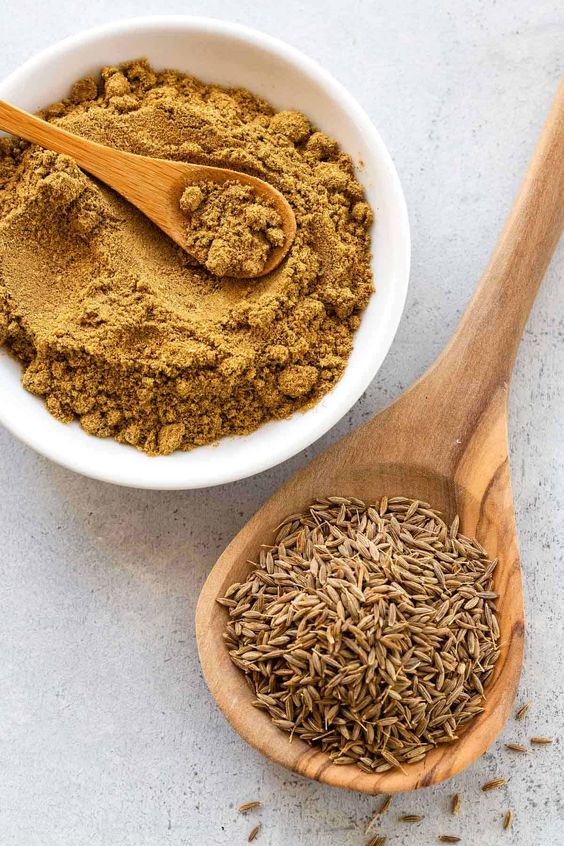Herbs and Spices - Cumin

Cumin
Cumin is an ancient spice grown in Egypt and the Middle East. It has been found in 4,000-year-old excavations in Syria and in ancient Egypt, where it was used both as a spice and as an element in preserving mummies. It appears in the Bible in both the Old Testament and the New Testament.
Since ancient times, cumin has been used extensively in India as well as by the Greeks and Romans. It made its way into Mexican and South American cuisine after European colonization, brought by the Spanish and Portuguese.
The fruit of the plant is called the cumin seed, and it’s popular all over the world as a spice. Cumin has become the subject of medical research, as anecdotal evidence claims it has all kinds of health benefits.
People usually buy cumin in the form of whole dried seeds or as ground powder. It is a typical ingredient in many spice blends, such as curry powder. Cumin is a staple spice in many food cultures, particularly Mexican, Indian, African, and Asian cuisine.
Aside from this, cumin has also played a medicinal role in many parts of the world, including Southeast Asia and Iran, for some years.People’s interest in cumin has recently been growing, as newer research is starting to support some of its alleged health benefits.
Benefits:
1.Boosts Digestion: Thymol, a compound in cumin that stimulates the enzymes, which enables better secretion of digestive juices.
2.Good for Immunity System: The presence of vitamin C in cumin seeds helps bolster the immunity system. It also has many antibacterial properties that keep infections and diseases at bay.
3.Treats Anemia: Anemia is a condition that is characterised by acute deficiency of iron. Cumin contains high amounts of iron, which may help in treating anemia.
4.Good for Detox: Cumin aldehyde, thymol and phosphorus are components of cumin that serve as good detoxifying agents.
5.Good Skin: Cumin has decent amount of vitamin E, one of the most skin friendly antioxidants. It helps to keep your skin tight and moist, giving you a healthy youthful skin. Cumin also helps battle skin inflammation. Its antibacterial and antifungal activity helps prevent skin infection too
6.May Help Treat Asthma: Cumin seeds are excellent anti-congestive agent. It helps clear mucus accumulation in your airways, lungs, bronchi and trachea. Asthma is caused due to swelling of lung lining and increased mucus production, which results inability to breathe. After clearing the path way, cumin's anti-inflammatory properties soothe the swelling and keep the mucous at bay.
7.Has Antiviral and Antibacterial Properties: Cumin seeds have umpteen antiviral and antibacterial properties that can keep mild flu, cold and cough at bay.
Serving way:
• Cumin-Lime Roasted Chickpeas Recipe
• Cumin-Spiced Shredded Chicken and Vegetable Soup
• Anti-Inflammatory Chopped Quinoa Tabouli Salad
• Kitcherie Recipe - An Easy Ayurvedic Dish
• Recipe Vegan Peanutty African Chickpea Stew
• Moroccan Spiced Chicken and Root Vegetable Stew
https://food.ndtv.com/food-drinks/7-benefits-of-cumin-zeera-you-must-know-1826677